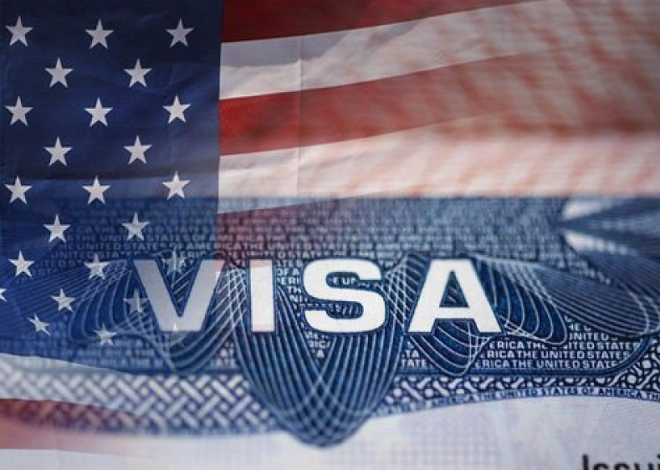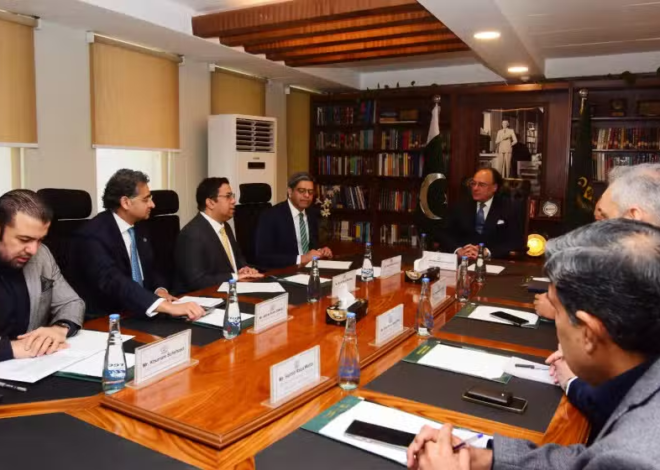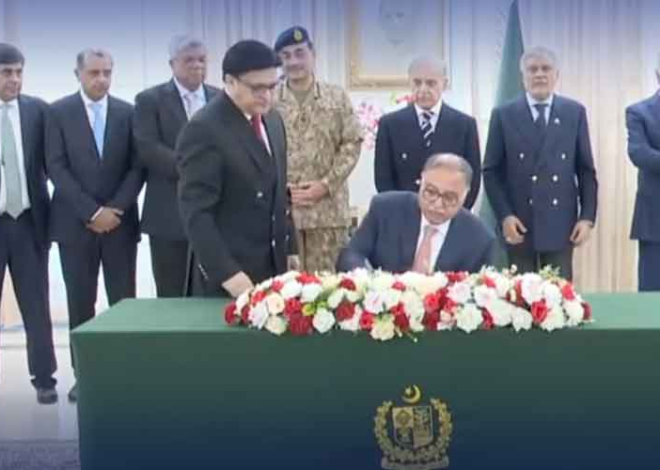
IMF to Receive Briefing on Pakistan’s New National Tariff Policy Today
The International Monetary Fund (IMF) delegation currently in Pakistan will be briefed today on the macroeconomic implications of the country’s newly introduced National Tariff Policy 2025–2030, according to official reports. The meeting aims to provide the global lender with a comprehensive understanding of the policy’s expected impact on trade, fiscal management, and industrial growth.
The federal government recently unveiled the five-year tariff framework designed to boost exports by 10 to 14 percent annually while curbing unnecessary imports. The policy reflects Pakistan’s broader effort to strengthen its external sector, diversify exports, and reduce trade imbalances in line with the IMF-supported reform agenda.
As part of the new structure, additional customs duties are planned to be completely phased out within four years, while regulatory duties will be eliminated over five years. The revised framework also aims to simplify the tariff structure by capping customs duties at a maximum rate of 15 percent.
The move is expected to enhance the competitiveness of local industries, attract foreign investment, and align Pakistan’s trade policy with global best practices. Officials believe the reforms will encourage industrial expansion, support small and medium enterprises, and improve the ease of doing business by minimizing tariff-related distortions.
Pakistan and the IMF are currently engaged in the second review under the $7 billion Extended Fund Facility (EFF) programme. The discussions are focused on fiscal discipline, structural reforms, and external sector performance. Simultaneously, the two sides are also conducting the first review of Pakistan’s climate financing framework, which aims to align economic policy with sustainable development and climate resilience goals.
Economic experts note that the National Tariff Policy is a key component of Pakistan’s medium-term economic reform strategy. It is expected to not only stabilize external accounts but also enhance manufacturing competitiveness through rationalized import costs and export-driven incentives.
The IMF’s review of the new tariff regime will be instrumental in determining the next tranche of funding under the loan programme. The delegation is expected to evaluate how the policy supports fiscal sustainability, trade liberalization, and long-term growth objectives.
With this briefing, Islamabad hopes to reaffirm its commitment to structural economic transformation, aligning domestic policy with the IMF’s reform agenda to promote stability and growth.


